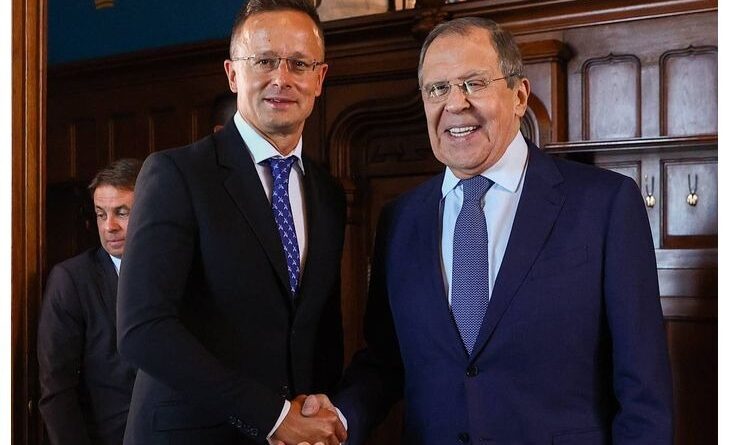Beyond Gas: Orbán’s Ambitions in Oil and Electricity Trading
Second of Two Articles – link to the first
Prime Minister Viktor Orbán’s energy strategy encompasses not only Hungary’s natural gas sector but also extends ambitiously into electricity trading and crude oil brokerage. By positioning Hungary as a pivotal player in Eastern European energy markets, Orbán aims not only to secure Hungary’s energy independence but also to influence regional policies toward reliance on Russian resources. This stance frequently diverges from EU energy diversification goals, yet Orbán leverages Hungary’s position to negotiate favorable terms, bolstering Hungary’s energy security and regional influence.
The Challenge of Reducing Reliance on Russian Oil
A cornerstone of Orbán’s strategy is obtaining an indefinite EU exemption from sanctions on Russian oil, enabling Hungary to continue transporting and trading Russian crude with its neighbors. This effort aligns with Orbán’s ambition to extend his influence across Eastern Europe. One focal point is the proposed oil pipeline connecting Hungary and Serbia, which would entrench Hungary’s presence in the Western Balkans, positioning Orbán as an influential broker for Russian and Chinese interests in the region.
Revenue from Russian oil exports underscores the economic significance of this strategy. The Center for Research on Energy and Clean Air (CREA) estimates that Russian oil exports transiting through Ukraine to Hungary, Slovakia, and the Czech Republic could generate around $6.6 billion in 2024. For every dollar Ukraine earns from transit fees, Russia reportedly stands to make nearly $39.8 from oil sales through the Southern Druzhba pipeline. This financial dynamic highlights the incentives for Hungary to maintain close ties with Russia, providing a crucial revenue stream that can indirectly support Russia’s wartime economy.
While Orbán has secured EU exemptions for importing Russian oil and gas, he has also pursued projects like the TurkStream gas pipeline to reinforce Hungary’s role as a conduit for Russian energy into Europe. This approach allows Hungary to collect transit fees and maintain a strong position as an energy broker with neighboring countries, such as Croatia and Slovakia, where Hungarian energy company MOL has substantial refinery interests.
Expanding Influence Through Asset Acquisitions: The Lukoil Refineries Case
Orbán’s strategy further includes acquiring key energy assets in Eastern Europe, including refineries previously held by Russia’s Lukoil. Hungarian energy company MOL initially explored acquiring Lukoil’s Petrotel refinery in Romania, but Romanian authorities blocked the deal over concerns about Orbán’s geopolitical stance. However, in Bulgaria, where Russian influence remains strong due to projects like TurkStream, the Lukoil refinery in Burgas is a prime acquisition target for Orbán and MOL.
If successful, this acquisition could enhance MOL’s refining capabilities, further securing Hungary’s economic and geopolitical influence across the region. However, the final decision on Lukoil’s asset divestment in Bulgaria and Romania ultimately rests with Russian authorities, adding a layer of complexity to Orbán’s acquisition strategy, as he remains dependent on Russian financial support.
Power Trade and Regional Integration
Beyond oil, Orbán aims to establish Hungary as a hub for electricity trading in Eastern Europe. By participating in cross-border electricity markets, such as those involving the Three Seas Initiative, Hungary strengthens its role in regional energy flows. Investments in interconnections with Romania and Slovakia allow Hungary to expand its electricity trade, capitalizing on redistribution opportunities during periods of peak demand or supply shortages.
Hungary currently supplies over 40% of Ukraine’s imported electricity, a position Orbán has leveraged to support the continuation of Russian crude oil exports through Ukraine. This strategic positioning underscores Hungary’s role as a significant player in regional energy dynamics.
Nuclear Power and Russian Dependence
Hungary’s energy approach also includes nuclear initiatives, such as the Paks II Nuclear Power Plant, in partnership with Russia’s Rosatom. Hungary remains the only EU nation to actively rely on new Russian nuclear energy projects, a stance reflecting Orbán’s commitment to integrating Russian energy sources despite EU opposition.
Regional Influence in Energy Policy and Security
Orbán’s energy strategy seeks to position Hungary as a vital force in Eastern Europe’s energy landscape, potentially making him an intermediary between Russia, the EU, and neighboring Eastern European states. This approach may bolster Hungary’s energy resilience, granting Orbán a diplomatic tool that enhances his political and economic leverage in the region. However, this strategy has raised security concerns within the EU and NATO, potentially limiting Orbán’s influence over the regional energy market.
Ilian Vassilev




